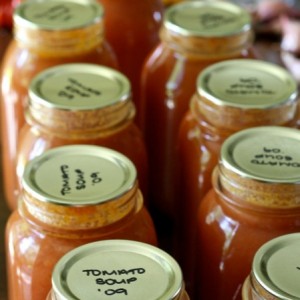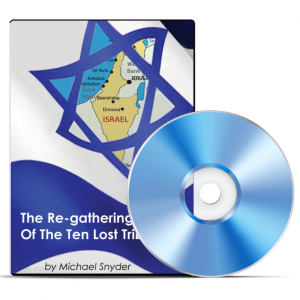 Creating an emergency food supply to store in your home is of enormous benefit to anyone. Whether you live in an area of the world that is prone to natural disasters or not, there is always cause to keep a food storage. Food storage could be welcome relief when your hometown has been hit by disaster. Perhaps that disaster comes in the form of a tornado, as it did so tragically for the people of Oklahoma, and you are left without anywhere from which to buy food or clean water, or perhaps you are housing people who no longer have a home. Perhaps the emergency is a police lock down similar to the one that happened in Waterford after the Boston marathon bombings. Perhaps the emergency is nothing more than a lost job, something which can affect a family deeply and make it difficult to get by without a backup supply of food. So if you want to do everything that you can to prepare your family for such disasters, here is a beginner’s guide to getting started with food prepping.
Creating an emergency food supply to store in your home is of enormous benefit to anyone. Whether you live in an area of the world that is prone to natural disasters or not, there is always cause to keep a food storage. Food storage could be welcome relief when your hometown has been hit by disaster. Perhaps that disaster comes in the form of a tornado, as it did so tragically for the people of Oklahoma, and you are left without anywhere from which to buy food or clean water, or perhaps you are housing people who no longer have a home. Perhaps the emergency is a police lock down similar to the one that happened in Waterford after the Boston marathon bombings. Perhaps the emergency is nothing more than a lost job, something which can affect a family deeply and make it difficult to get by without a backup supply of food. So if you want to do everything that you can to prepare your family for such disasters, here is a beginner’s guide to getting started with food prepping.
Step 1: Figure out What Exactly You Eat
Start taking note of the recipes and ingredients that you use most frequently. This will help you to figure out exactly what kind of food you will need to start storing to build up your emergency supply. If you get into the habit of doing this, it will become fairly easy. Start recording each time you use a particular ingredient, and specific meals that you make often, and you will start to notice patterns.
Step 2: Start Creating it Gradually
Sometimes people are put off by the thought of food storage, simply because it seems like such an enormous task that they just do not know where to start. But the great thing about food storage is that it doesn’t have to turn into a huge inconvenience. You can create your food storage gradually by buying a little bit extra every time you go to the grocery store. It is convenient that you will be storing things that you use regularly anyway, so next time you run out of a particular ingredient, just buy two instead of one to replace it.
Picture Credit- www.alphapress.org
Step 3: Set Some Space Aside
You will have some trouble creating an emergency food supply if you don’t have anywhere to put it. Set aside some space somewhere in your home to keep your food storage. If you have a pantry with a little extra space in it, perfect, but if not there are still plenty of ways that you can hide your food storage in your house. You can keep it in your garage, under beds, in your closets, behind furniture, anywhere you can find a place.
Step 4: Keep Going!
Once you have created a basic supply, the hard part is over, but that does not mean that you never have to think about it again. Look out for special deals and coupons that can help you to top up your food storage. Use the food every once in awhile, this will help you to decide which are the best and worst foods to store. Eventually keeping food storage will be second nature to you, and you may even start to enjoy it!
Lee Flynn is a freelance writer, self-reliance advocate and food storage expert.










